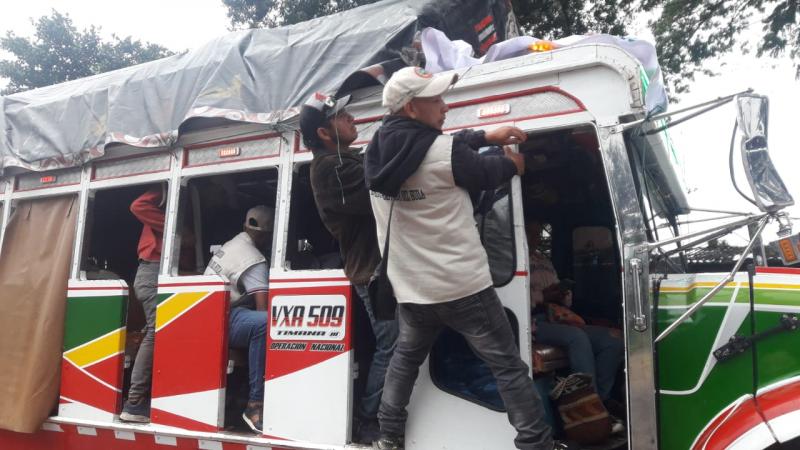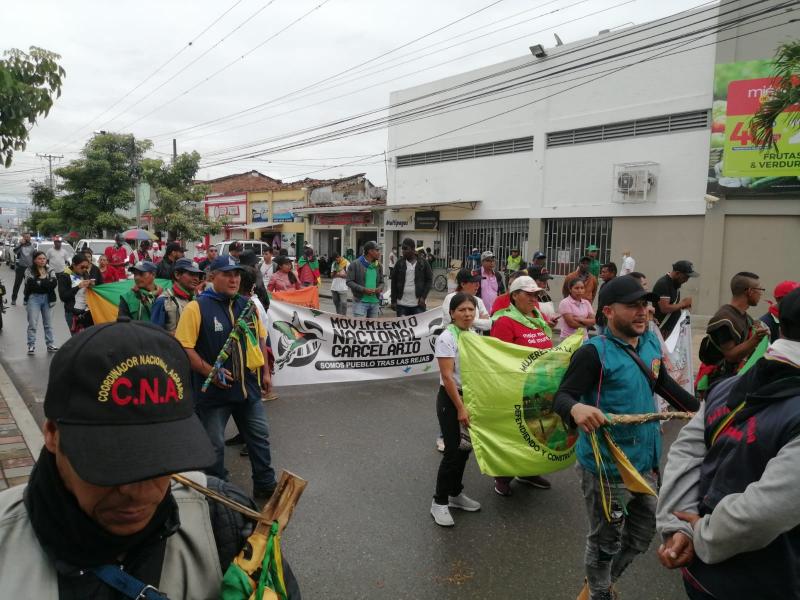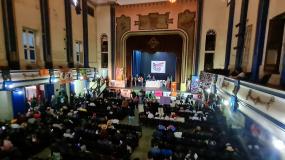 On April 28, 2022, it will be one year since the massive strike that shook Colombia in 2021. Hundreds of thousands of people took to the streets for months against the neoliberal and repressive policies of the state. In addition to the collective euphoria of this moment, the sites of mobilization generated solidarity and very strong local self-organization. The strike was also marked by fierce repression: the toll was heavy with a hundred murders, a hundred serious eye injuries, 60 cases of sexual and gender-based violence, and 129 forced disappearances between April 28 and May 28, 2021. Most of these crimes were perpetrated by law enforcement and remain unpunished to this day. In the last 12 months, thousands of people have been arbitrarily detained by the security forces. Since the strike, the criminalization of social protest has increased, including the prosecution of social movement activists throughout the country.
On April 28, 2022, it will be one year since the massive strike that shook Colombia in 2021. Hundreds of thousands of people took to the streets for months against the neoliberal and repressive policies of the state. In addition to the collective euphoria of this moment, the sites of mobilization generated solidarity and very strong local self-organization. The strike was also marked by fierce repression: the toll was heavy with a hundred murders, a hundred serious eye injuries, 60 cases of sexual and gender-based violence, and 129 forced disappearances between April 28 and May 28, 2021. Most of these crimes were perpetrated by law enforcement and remain unpunished to this day. In the last 12 months, thousands of people have been arbitrarily detained by the security forces. Since the strike, the criminalization of social protest has increased, including the prosecution of social movement activists throughout the country.
That is why on April 23, 2022, social movements organised a national ‘Caravana’. Thousands of people set off from the four corners of the country to converge in the city of Bogotá, on April 27 and 28, where different organizations, movements, peoples and individuals will gather in order to declare a Humanitarian Emergency.
Since their departure, participants of the caravana have been subject to persecution and harassment by the police. The movements involved call for solidarity, and communities intend to implement mechanisms of self-protection. They also call for mobilization and direct political action of communities towards the transformation of society.
In Colombia, in recent years (2016-2021), the popular movement, the peoples and various social sectors have carried out actions and mobilization campaigns to confront the genocidal practices of the State and the ruling classes, which seek to weaken and exterminate all expressions of protest or transformative social organizations.
These mobilizations continue in a context of social and environmental crisis and famine, aggravated by sanitary measures and the pandemic, and an upsurge of the war in the countryside and in the cities. The year 2021 ended with a frightening 95 massacres, resulting in 334 deaths. Between January and February 2022, 22 social leaders were murdered in the country, showing that this practice continues to be systematic. It is a policy of elimination and annihilation of social processes. On the other hand, the massive forced displacements caused by the paramilitary presence in the territories, have provoked the emergence of refuge areas self-managed by community organizations. The declaration of the Humanitarian Emergency aims to make visible the causes of the war: there is an alternative project of society, of community and collective life that is the target of systematic attacks.
Between January and February 2022, 22 social leaders were murdered in the country, showing that this practice continues to be systematic. It is a policy of elimination and annihilation of social processes. On the other hand, the massive forced displacements caused by the paramilitary presence in the territories, have provoked the emergence of refuge areas self-managed by community organizations. The declaration of the Humanitarian Emergency aims to make visible the causes of the war: there is an alternative project of society, of community and collective life that is the target of systematic attacks.
The declaration of the Humanitarian Emergency is an autonomous response of social movements. It is an instrument of political action to make visible and denounce the political genocide, impunity and crisis triggered by capitalist, colonial and patriarchal hegemony. It is a self-managed defense mechanism set up to avoid forced displacement from the territories.
The Caravana will hold public hearings around the country to denounce mega projects such as fracking, which threaten ecosystems. On April 28, in Bogotá, the thousands of people expected to attend will make a declaration of Humanitarian Emergency to international organizations and mass mobilizations will take place throughout the city. These will echo the mobilizations expected across the whole country
